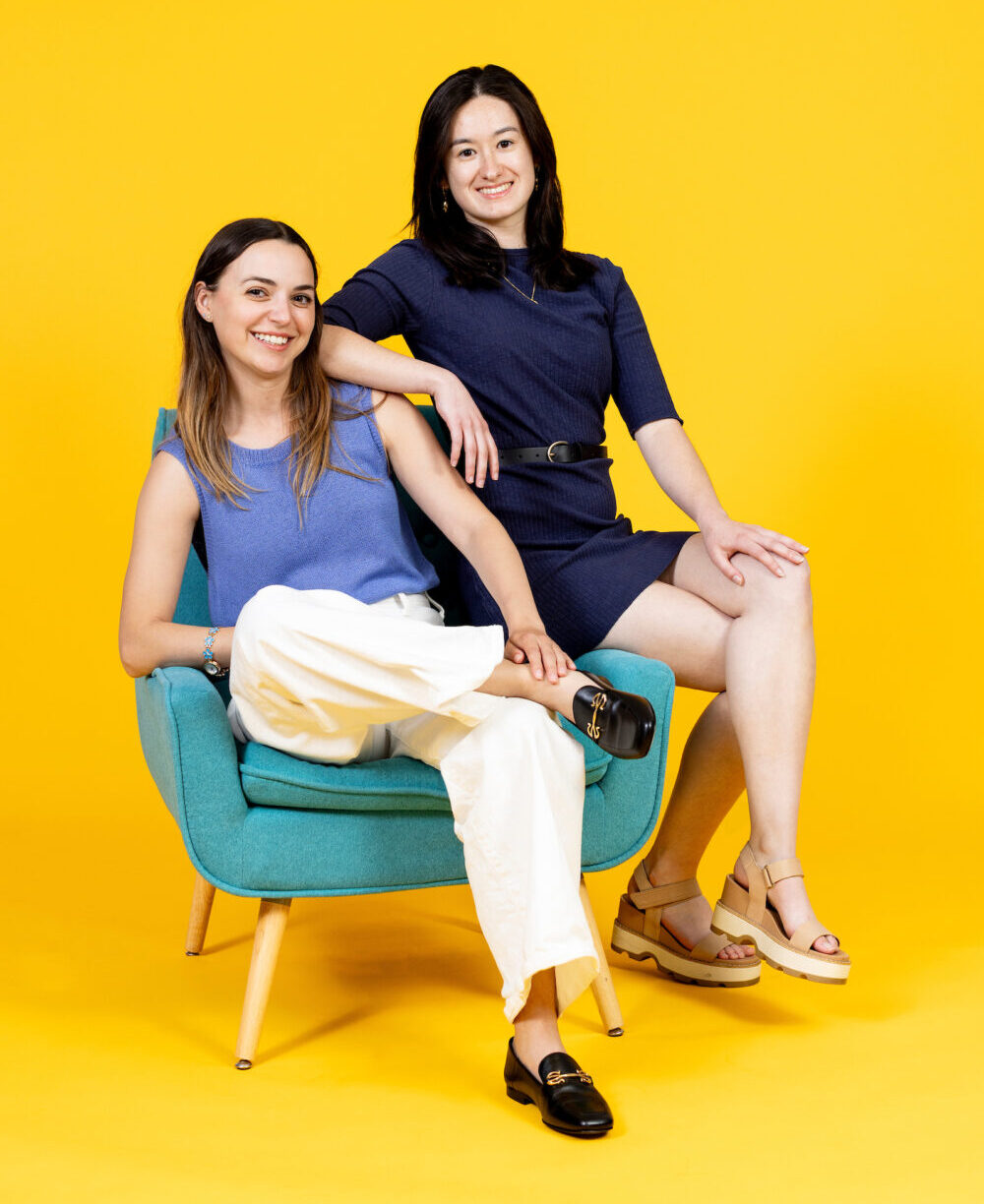From sargassum to sustainable coating: Inside Ecoplasticity’s biodegradable solution

Each year, an overabundance of sargassum seaweed blankets coastlines from Florida all the way to the Caribbean. While its natural presence in the ocean is actually beneficial to the ecosystem, sargassum becomes a problem when it accumulates on the shore, blocking sunlight from reaching coral reefs, disrupting marine ecosystems and ultimately rotting on the beach.
Governments are spending millions of dollars annually just to remove this unwanted seaweed and send it to landfills—but where others see waste, Ecoplasticity sees opportunity.
Founded by recent California Polytechnic State University (Cal Poly) masters of business administration graduate Mayela Fernandez and masters of polymers and coatings student Michelle Cullen, Ecoplasticity is a sustainability-driven startup transforming waste into a valuable resource.
The two founders are using sargassum to create a compostable, anaerobically digestible coating for takeout containers. Their goal is to not only provide a biodegradable alternative to harmful plastics but to turn a global environmental crisis into a solution for a more sustainable future.
“We’re tackling two problems at once,” Fernandez said. “We’re addressing the environmental damage caused by sargassum and also creating a sustainable alternative to plastic food packaging.”
In late 2023, Fernandez reached out to the head of Cal Poly’s materials engineering department, hoping to find students eager to advance Ecoplasticity’s mission. That’s how she met Cullen—a fellow environmental advocate with a strong interest in the emerging field of seaweed-based innovation.
Fernandez, the startup’s CEO, leads business operations, marketing and investor relations, while Cullen, CTO, focuses on formulation and lab development. The duo has been working to further this company for over a year and a half.

Mayela Fernandez (left) and Michelle Cullen (right) of Ecoplasticity. Photo by Ruby Wallau for CIE
“Coming from different backgrounds, we can sometimes have clashing decisions on what we think is right,” said Cullen. “But because we trust each other and what we’re experts in, we’re able to collaborate and make the best decision going forward.”
That passion for sustainability goes back to childhood for both founders. Fernandez recalls encouraging her own family to adopt eco-friendly habits—like when they visited San Luis Obispo with plastic water bottles and returned home with reusable ones. Cullen, meanwhile, grew up picking up litter along the shoreline every time she visited the beach. Today, that same dedication drives their work with Ecoplasticity.
Their innovation starts with a waste stream most companies avoid. The sargassum used by Ecoplasticity is collected from beaches where it has already been harvested for disposal, allowing the team to repurpose a material that is typically headed for a landfill. Unlike kelp or other regulated seaweeds, sargassum is not farmed, making it an abundant and accessible raw material.
“No one wants this stuff,” Fernandez said. “It’s invasive, people want to get rid of it and it’s just going to landfills. We’re taking that waste and turning it into something useful.”
Ecoplasticity’s seaweed-based coating is designed to replace the plastic coating inside takeout containers. While many paper-based containers are marketed as compostable, their plastic coating prevents them from breaking down in most environments.
“Most ‘compostable’ plastics require very specific conditions to degrade and turn into a soil or nutrient, and many people don’t sort their waste properly,” Cullen said. “Its important that our product can degrade in a timely manner as opposed to current alternatives on the market that can take thousands of years to decompose.”
Their journey as startup founders began long before the summer. Ecoplasticity started in the Cal Poly Center for Innovation and Entrepreneurship’s (CIE) Hatchery program, an on-campus incubator where students from all colleges and majors come together to gain hands-on experience launching a company.
From there, they competed in the CIE Elevator Pitch Competition (EPC), a fast-paced, high-energy competition where students of all majors and skill levels have 90 seconds to pitch their innovative product, service or startup ideas for the chance to win up to $1,000.
After the continued validation and support from these programs, Ecoplasticity was a finalist in the CIE Innovation Quest (iQ), a high-stakes competition where Cal Poly students pitch their innovative business ideas and prototypes to a panel of judges in hopes of winning thousands to fund their startup.
Each of those milestones prepared them to apply for the CIE Summer Accelerator, an intensive 12-week program that provides Cal Poly students and recent graduates with the resources necessary to turn their innovative ideas into full-fledged startups.
“Participating in EPC and iQ helped prepare us for the Accelerator because we are more confident in how we present our idea to potential investors or even just people who are interested in our product,” said Fernandez.
Participants in the Accelerator receive $10,000 in seed funding, as well as access to expert mentorship, entrepreneurial workshops and a dedicated workspace in the HotHouse, the CIE’s office located in downtown San Luis Obispo.
“The Summer Accelerator helped us figure out how to shape the company from just an R&D project into an actual business,” Cullen said. “We’ve learned how to identify our weaknesses, focus our goals and get real guidance on entering the market.”
Over the course of the Accelerator, Ecoplasticity has made significant progress toward developing their first market-ready prototype. Their initial goal is to get their product in the hands of the consumers to get feedback and see if they are ready to go to market. They also hope to prepare for any potential FDA regulation issues and “do things right from the beginning,” according to Fernandez.
Most recently, the team secured a $50,000 grant—bringing their total to $90,000 in non-dilutive funding raised to date.
Long term, Fernandez and Cullen envision Ecoplasticity expanding into other areas of food packaging, whether that is grocery store bags or other types of single-use plastics.
“What excites me the most about our startup is its growth potential,” Cullen said. “Seaweed and algae-based materials are these cool new materials everyone is interested in, and we’re excited to be part of that wave with something that’s actually solving multiple problems.”
For Fernandez, her excitement goes beyond Ecoplasticity’s current product.
“Even outside of just this coating, I’m excited to see where else we can expand and help mitigate the plastic pollution that we see in the world every year getting worse and worse,” she said.
Watch Ecoplasticity and our six other Accelerator startups pitch live at Demo Day here.
###
About the Cal Poly Center for Innovation and Entrepreneurship:
The CIE opens a world of entrepreneurial opportunity to Cal Poly students, faculty and community members and promotes entrepreneurial activity and dialogue across the university and throughout San Luis Obispo County. For more information, visit cie.calpoly.edu.